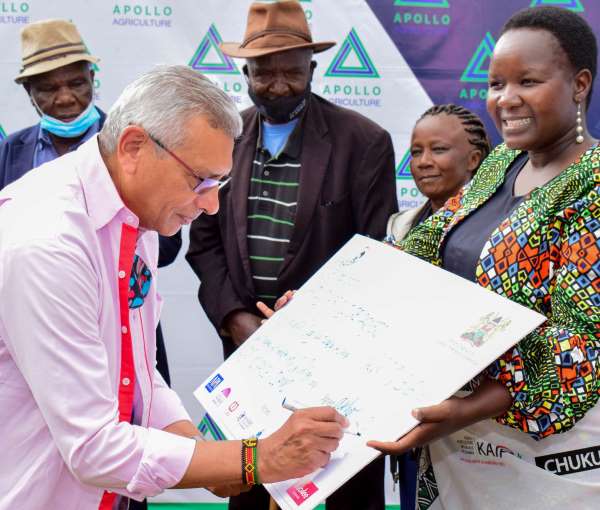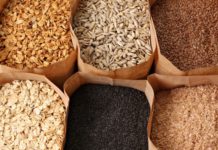
Leading Kenyan insurance company, APA Insurance on behalf of the Kenya Agriculture Insurance Group (KAIG) and in partnership with Apollo Agriculture and Pula, announced a Ksh 12 million initial insurance payout to maize farmers in Nandi for losses incurred during the 2021 season.
APA Insurance leads the KAIG, which comprises of seven top insurers – UAP, CIC, Amaco, Jubilee, Kenya Orient and Geminia, paid the compensation to over 5000 farmers. This is the first time the famers, in this region, have received any compensation for failed crops due to climate change.
APA Insurance is the lead insurer, Apollo Agriculture is the client, and Pula is the service provider and did risk assessment to determine the claims for the smallholder farmers.
“In Kenya, agriculture is vital to the economy and over 75 percent of our fellow countrymen rely on agriculture at various degrees for their livelihoods. The government has identified agriculture insurance as part of the broader risk management program and a key strategy to de-risk agriculture,” said Ashok Shah, CEO The Apollo Group. “We are supporting the Government of Kenya agenda on food security through the creation of an enabling environment and ensuring sustainable natural resources management. Agriculture finance and insurance are strategically important for achieving the mission of eradicating poverty and ensuring shared prosperity.”
He added that in the past farmers carried a great burden occasioned by crop failure, climate change, pests and diseases but the private sector has come to close this gap and insurers have played a major role in ensuring that farmers have a steady income from their activities regardless of the weather and other factors.
Crop insurance aims to contribute towards a long-term transformation of farming from subsistence to commercial agriculture. Further, farmers’ compensations during a failed season is critical for stabilizing their incomes and building of resilience thus leading to overall agricultural growth and development.







